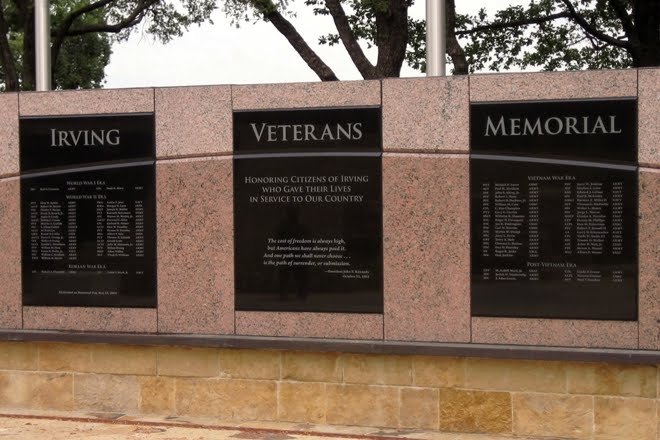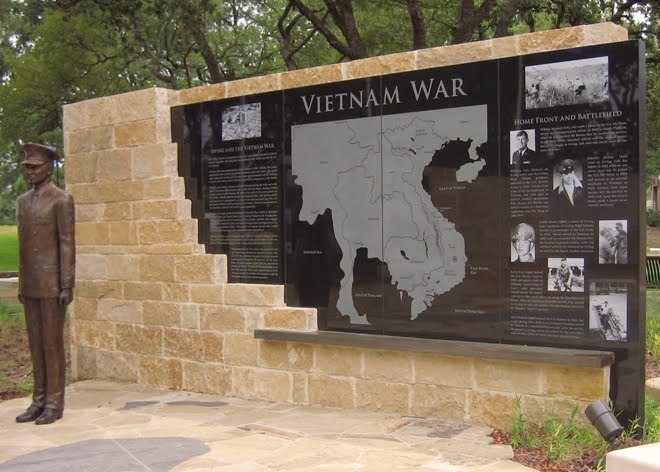Arthur Casey (right) moved to Irving at age ten. He won the Distinguished Flying Cross during WWII for flying more than 90 missions as a Marine pilot in the South Pacific. After the war, he returned to Irving and spent decades as a teacher, coach, and administrator in the Irving Public Schools.
Glenn Collett moved to Irving with his family just before the U.S. entered WWII. He enlisted in the Marines at age 17 and saw action in the Pacific, including Guam and Okinawa. Private Collett was killed while fighting on Okinawa in May 1945. He was nineteen years old.
Albert Sain moved to Irving with his family in the late 1930s. He served in the U.S. NAvy and saw action in the Pacific during WWII. In July 1945, Seaman 1st class Sain was serving on board the U.S.S. Indianapolis when it was torpedoed. Sain was among 300 sailors killed in the explosion. Approximately 900 men abandoned ship and spent five days in the water suffering from exposure and fighting off shark attacks. Only 317 crewmen survived.
Morgan Lyon, an Irving native, served in the U.S. Navy during WWII. He was stationed on the aircraft carrier Wasp, which supported the invasion of Iwo Jima and also sent planes to bomb Japan. On March 19, 1945, a Japanese bomb pierced the deck of the carrier and exploded in the mess area. Machinist's Mate Lyon and more than 100 of his shipmates died.
Three brothers from Irving's Crump family served in the military during WWII. Walter and Harry, Jr., joined the U.S. Army Air Corps. Walter was reported missing in action in early 1943 after a bombing mission in Tunisia. Harry was lost in August 1943 when his plane went down during a raid on the Ploesti oil refineries (above). Both were awarded the Air Medal posthumously. The youngest brother, George, served in the U.S. Army. To prevent further loss to the family, he was not sent overseas.
Irving High School graduate Fred Cox (3rd from left) and his crew stand in front of the plane he named for his wife. Lieutenant Cox, an Air Medal recipient, was shot down in 1943 during a bombing raid on Europe. The plane and crew were lost in the English Channel.
Irving native Dr. Joe Roberts served as a military surgeon in North Africa and Italy during WWII. He was awarded the Bronze Star for meritorious service for operating on the wounded while under heavy bombardment. After the war, he returned to Irving, where he helped establish Irving Community Hospital and served as its first chief of staff.
During the war, change came to Irving as local residents left their farms and small businesses to take jobs in armament factories. Many residents of Irving and northwest Dallas County went to work at North American Aviation, where the P-51 fighter plane was produced. Irvingite James B. Andrew (above) worked as an inspector at the plant.
Lieutant Harry Spencer, Jr. served in the U.S. Army Air Corps. He won the Legion of Merit for bravery for tending to injured crew members for months after their plane crash-landed in Greenland in 1942. After the war, Spencer opened a business in Irving and served on the city council and the school board.












No comments:
Post a Comment